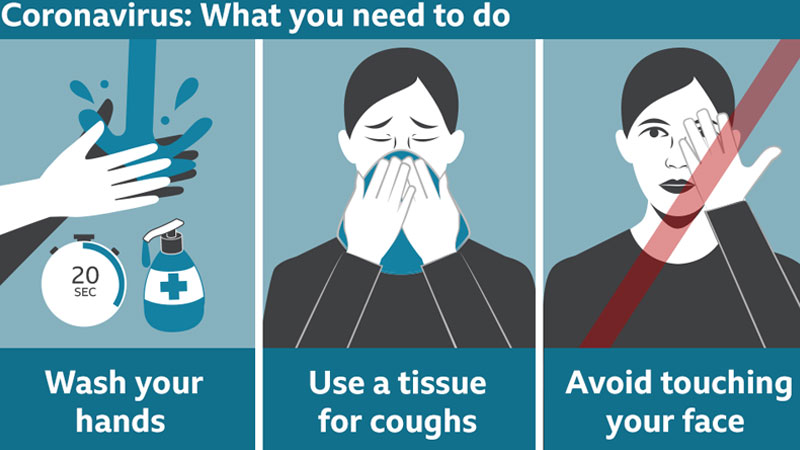
Researches say the virus responsible for COVID-19 can remain infectious on surfaces such as banknotes, phone screens and stainless steel for 28 days.
The findings from Australia's national science agency suggest SARS-Cov-2 can survive for far longer on surfaces than previously thought.
However, some experts have thrown doubt on the actual threat posed by surface transmission in real life.
The virus is most commonly transmitted when people cough, sneeze or talk.
Previous laboratory studies have found that SARS-Cov-2 can survive for two to three days on banknotes and glass, and up to six days on plastic and stainless steel, although results vary.
The latest research from Australian agency CSIRO found the virus was "extremely robust," surviving for 28 days on smooth surfaces such as glass found on mobile phone screens and both plastic and paper banknotes when kept at 20C.
In comparison, the flu virus can survive in the same circumstances for 17 days.
The experiments were carried out in the dark, as UV light has already been shown to kill the virus.
[Source: BBC]
Stay tuned for the latest news on our radio stations


